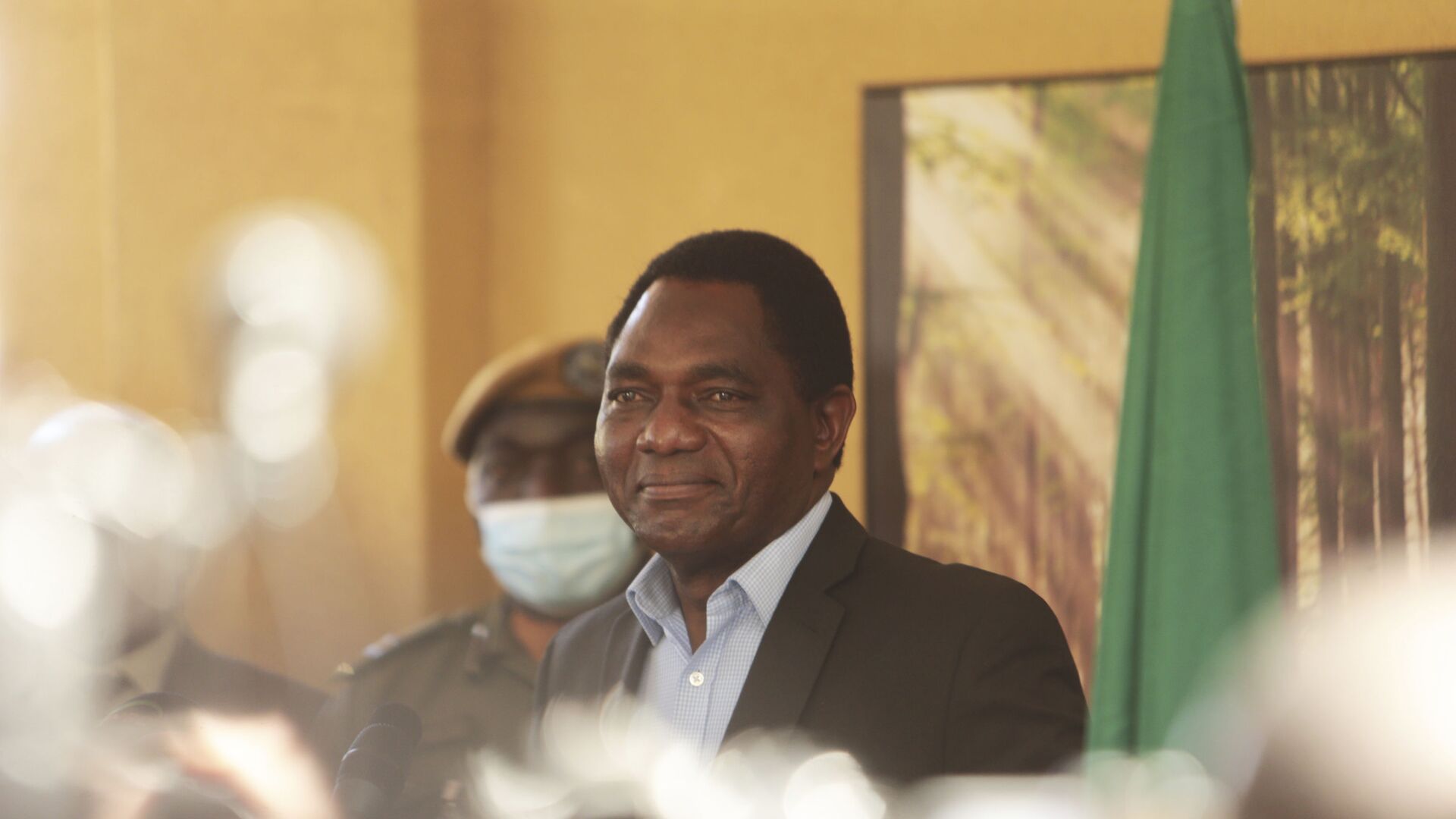China Joins Zambia’s Creditors in IMF Restructuring Deal
19:42 GMT 26.04.2022 (Updated: 11:38 GMT 23.11.2022)

© AP Photo / Tsvangirayi Mukwazhi
Subscribe
The West has demonized Chinese financing for other Third World nations’ development as “debt-trap diplomacy,” but the International Monetary Fund (IMF) requires economic restructuring that opens nations’ economies to Western domination when it hands out loans.
Zambia has revealed that China has joined the list of creditors in the IMF debt restructuring plan it accepted in December.
“Am proud to announce to the nation that we engaged China, we engaged other creditors to negotiate a debt resolution package. I engaged China myself as president, that’s my job, which you gave me, working together with the Ministry of Finance, Foreign Affairs. We want to thank China for joining the common framework agreement to resolve the debt crisis,” Zambian President Hakainde Hichilema said on Tuesday.
“Last year we reached the staff-level agreement with the IMF on the debt restructuring. You can’t build the economy with huge debt mountains, and we undertook a decision to dismantle this debt and create room to release resources towards debt servicing in the economy to create jobs and grow the economy,” he added.
On Twitter, the Zambian leader further boasted that “This couldn’t be done in 10 years, we have done it in 8 months!”
Lusaka reached a staff-level deal with the IMF in December for a three-year lending program worth around $1.4 billion to help Zambia restructure its extensive debts. However, when asked about the deal by the Lusaka Times last month, the Brussels-based lender refused to disclose its terms.
Hichilema, one of Zambia’s richest men and someone with deep ties to Western financial centers, won the elections in August 2021, defeating incumbent President Edgar Lungu. Lungu’s nationalization of the country’s lucrative copper mining industry, as well as his closeness with Beijing, made him an unpopular person in the West, and Hichilema’s election brought renewed hope that the southern African country could be brought back into the European fold.
The country is heavily indebted, including $2.2 billion owed to China, $3 billion in Eurobonds, $3.5 billion in bilateral debt, $2.1 billion to multilaterals and $2.9 billion to commercial lenders. Despite being a minority of its debt, Lusaka’s debt to China has been extensively attacked by the Western press as proof of Beijing’s “neocolonialism” in Africa and even called “debt slavery.” In fact, Zambia owes more to the European Union than to China.
However, a deeper angle was revealed last year when US President Joe Biden unveiled a Build Back Better World (B3W) infrastructure investment program, intended to be a competitor to China’s Belt and Road Initiative (BRI), which many developing nations have chosen to work with due to Beijing’s comparatively politically hands-off approach to investment.
Speaking to the London-based Financial Times in January, Hichilema promised not to favor Chinese creditors over Western bondholders.
“We want to resolve the debt situation - it has to be resolved,” Hichilema said. “It’s good for Zambia, it’s good for creditors, because in the situation we were [in] when we took office, it was a no-win situation. No one was benefiting.”
“What we don’t intend to do is to cross-subsidize - one debt stockholder paying a higher price, if you want to put it that way, or having better terms and another having worse terms,” he added. “One creditor being of Chinese origin or another origin is not much of the issue here, it’s to make sure we come out of the problem.”

